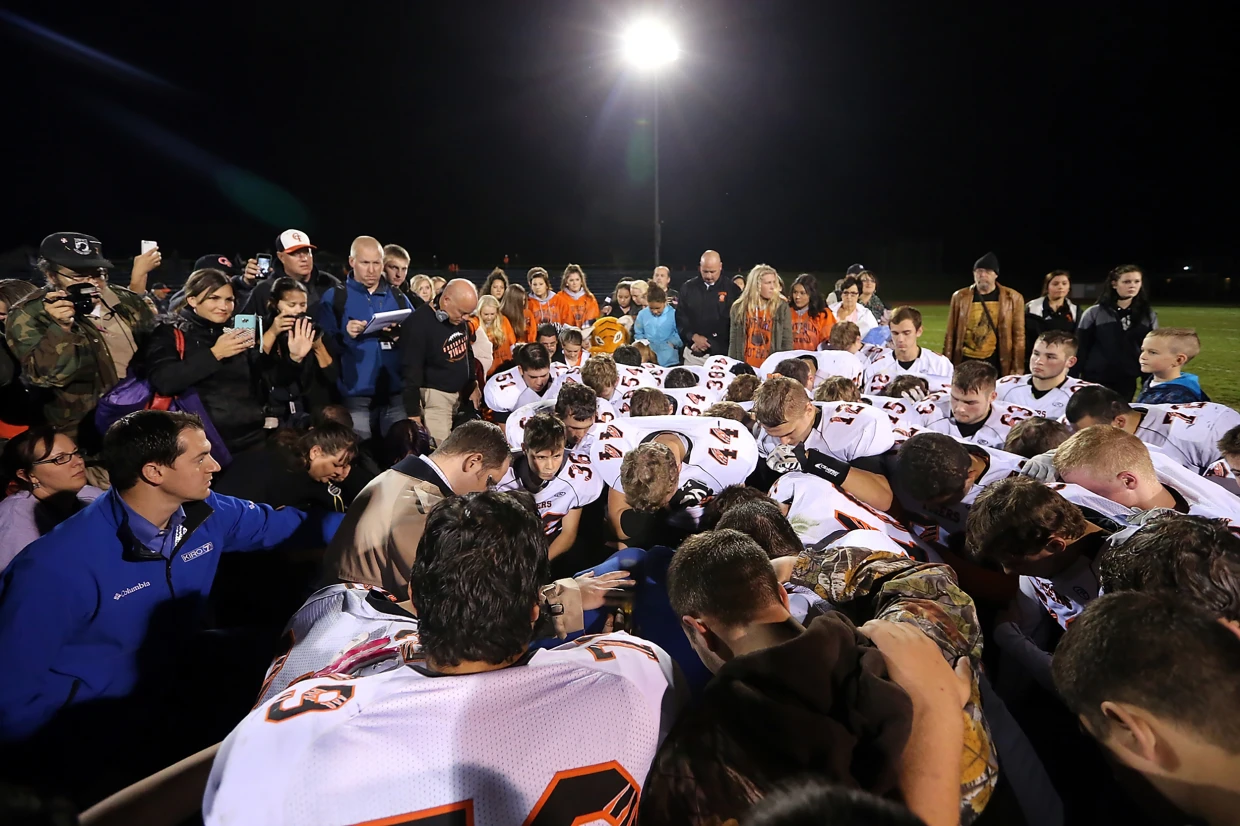
Greetings, all,
Faith Ed celebrated its second birthday in August, but if anything, the need for teaching about religion in public schools has only increased. In the early months of Faith Ed’s publication, I spoke primarily to general audiences or to interfaith organizations, churches and temples and other religious groups. As time has continued, though, teachers, one of the groups I have hoped to reach, have sought me out as well.
In the aftermath of the 2016 election and the rise in Islamophobic rhetoric, many educators have become well aware that they have to work even harder to educate themselves and the communities they serve about why they teach about world religions and how they’re doing it. Using Faith Ed and the reporting trips I did around the country, I prove some tips on how to avoid landing in controversy when teaching about religion, especially when Islam is on the lesson plan.
Why do teachers run into roadblocks when teaching about religion? Just look at the chart above. This survey was in 2010, but little has changed. Many in the general public have no idea that teachers can even teach about religion.
Last month, I spoke about lessons learned from Faith Ed at the Harvard Graduate School of Education’s Gutman Library. Many thanks to Professor Natasha Warikoo for her wonderful introduction and to Professor Meira Levinson for submitting my name to the author series. The audience, which included Harvard graduate students and professors, was engaged and eagerly participated in a case study on guest speakers on religion. See the free teacher’s guide to Faith Ed for a look at the guest speaker case study.

Pictured: Professor Natasha Warikoo and me after the Harvard talk in October.
Coming up this month, I will be a featured speaker at the National Council of the Social Studies conference in San Francisco. My talk , Teaching about Religion in Polarized Times, is scheduled for 4 p.m. Saturday, Nov. 18. Many thanks to Facing History & Ourselves for sponsoring the talk and making it possible for me to attend this year. If you’re attending NCSS, please come to my talk, visit the book signing area afterward, and also stop by the Facing History booth, which will have printed reading group guides available.
What I’m reading or have on my to-read list:
The Book of Separation by Tova Mirvis: It’s a compelling read about Tova Mirvis’s break away from her Orthodox Jewish faith. For those interested in learning more about Modern Orthodox Jews and Orthodox Jews, this is a great way to get an intimate look.
Ali, a Life, by Jonathan Eig: Jon Eig’s eye for detail is remarkable. This book has been billed as one of the most comprehensive biographies of Muhammad Ali. Jon, a classmate of mine at Northwestern, is a terrific, narrative writer. If you get a chance to hear him speak about his book, take it. I heard him recently at a library in North Reading, Mass.

I’m also digging deep into books about racism in America these days as I work on a new book project. Next up for me is: Stamped from the Beginning by Ibram X. Kendi.
I hope to see some of my newsletter readers at NCSS in San Francisco in a few weeks. If you’re in the Boston area, meanwhile, I’m slated to speak at the Flint Memorial Library in North Reading, Mass., on Jan. 25, at 7 p.m. Stay tuned for more details in a future newsletter.
If you haven’t read Faith Ed, it’s readily available at bookstores, on Amazon, and through Beacon Press. The paperback version, complete with an index, has been out since August 2016.
As always, thanks for reading!
Linda
On a final note, I wanted to remember my long-time friend Jeffrey Weiss, who I worked with at the Dallas Morning News from 1997-2003. Jeff quickly became a friend and a mentor. He died Oct. 25 of brain cancer, a disease he wrote about so eloquently in columns and stories for The Dallas Morning News, the Religion News Service and USA Today. He was always bigger than life to me with his passion for journalism and his never-ending curiosity about the world we live in. His columns, for the way they tackle religion and dying and death, are worth reading. His was a life lived to the fullest. I feel blessed that I got to see him this past September at the Religion News Association conference, where he received a lifetime achievement award for his incredible work as a religion reporter. I’m not sure you’ll be able to read the sign on his hat in this photo. If you can’t, it says, “Cancer sucks.” Thanks, Jeff, for inspiring us, for making us all much more educated about the world and religion, too.





